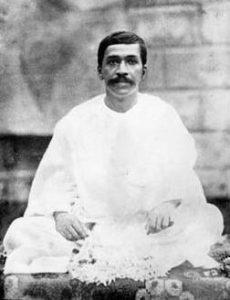Concentration and Outer Activities
Mother, an inner effort is often spoilt by dispersions in outer activities.
When one is outwardly active, how to keep the concentration?… Oh, this should not be very difficult. Truly it should not be very difficult. For me what seems difficult is not to keep a kind of intensity of inner consciousness, to be separated from it; this seems something impossible. Once one catches that within oneself, how can one separate oneself from it, if you have had it once, if it has become a reality for you, this consciousness and this inner union with the psychic, and this consciousness and intensity of aspiration, and this flame which is always lit? Why, whatever one may be doing, this cannot be extinguished, it is always there.
It seems to me that to separate oneself from it, once it is there, you must close a door, you must deliberately close the door, like this, upon it, and say, “I am no longer interested in it.” But if one truly has the will to keep the contact, it doesn’t seem very difficult to me. It seems to me that one must really have the will to turn one’s back upon it for it to go away; otherwise it is there, behind everything, all things, constantly. And if on the contrary one has made it a habit, when saying something, when making a movement, simply a movement or doing anything at all, to refer always to that, in there, not to feel capable of doing something without having that at the back, there, to tell you, “Yes, this way, not that way. That, no, not that, this”, then it is difficult to live without it.
Some people, because it troubles them, because it puts a control on their impulses and they want to feel absolutely free and independent (what they call independent), seem deliberately to bang the door, like that, they slam the door violently to stop it. Then naturally, once it is done, it is done; then one becomes something so superficial, so weak, so petty, so ignorant,so stupid! How can one bear to be like that? It seems to me that immediately the instinct would be to take a step backwards, open the door hurriedly and put oneself again into contact, saying, “No, no, no, not this state, not this frightful state of ignorance” — in which you don’t even know what you ought to say or ought not to say, what you ought to do or ought not to do, where you should go or should not go, nothing, nothing, you are in an obscure and incoherent immensity. It is a dreadful state. But when the door is open and this thing is behind, it is absolutely comfortable at every minute, as though one were leaning one’s back against a great light, a great consciousness, like this… “Ah, now, here we are, this is what ought to be done, that’s what ought to be said, this is the movement to be made”, etc. So, then one is comfortable, quiet, without anguish, without any problem, without any anxiety. One does what one wants to do; whether people take it more or less well is their affair, but for oneself it is like that.
And note that I am telling you this because I take the greatest care to open your door, inside all of you, and if you have only a little… a small movement of concentration within you, you don’t have to spend those long periods in front of a closed door which does not move, of which you do not have the key, and which you do not know how to open. Sometimes one has to wait stuck to the door for hours or for days or months or sometimes for years, and you do not know what to do.
It is not like that for you, my children.
The door is open, only one must look towards it. One must not turn one’s back to it.
The Mother
The Mother, Questions and Answers 1955, pages 68 – 69
|

